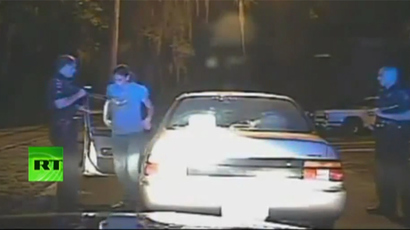Texas judge: Search warrants can be obtained based on predictions of future crimes

Police in Texas may now obtain a search warrant based on “a prediction of a future crime,” according to a dissenting judge on the state’s criminal appeals court.
The ruling by the Texas Court of Criminal Appeals came last week, ending a controversial case in which police searched a house before obtaining a warrant but were still able to present the confiscated evidence during a trial.
The incident began during the summer of 2010, when police in Parker County, Texas, staked out Michael Fred Wehrenberg’s home for a month. According to the Dallas Observer, authorities allegedly received a tip from a confidential informant stating Wehrenberg and his associates were “fixing” to cook meth in the home. Without obtaining a search warrant, they walked into the home and arrested the people inside.
It was only after arrests were made that police sought out the warrant necessary to confiscate the meth-making material in the home, including boxes of pseudoephedrine, stripped lithium batteries, and other items. On the warrant application, however, police declined to mention that they had actually been in the house prior to obtaining authorization for the search, mentioning only the informant who tipped them off.
During Wehrenberg’s trial, his attorney argued the confiscated material was inadmissible due to the fact that police seized it illegally. The judge overruled this request, saying federal “independent source doctrine” allows such evidence when a third party – the unnamed informant – tells police about it beforehand.
As a result, Wehrenberg pleaded guilty to one count of possession and another count of intent to manufacture. He was sentenced to five years in prison.
The Second Court of Appeals then overturned the trial judge’s decision, but ultimately the Court of Criminal Appeals agreed with the original ruling. As the Observer reported, the majority opinion written by Judge Elsa Alcala stated that while Texas law prohibits illegally obtained evidence to be submitted, federal precedent allows it if first confirmed by an independent third party.
One justice, however, did not agree. In the dissent, Judge Lawrence Meyers wrote that the only reason police decided to apply for the warrant is because they had previously entered the house illegally.
“Had the officers entered the home and found the occupants only baking cupcakes, the officers would not have bothered to then obtain the warrant at all,” Meyers wrote, according to the Observer. “It was only after unlawfully entering and finding suspicious activity that they felt the need to then secure the warrant in order to cover their tracks and collect the evidence without the taint of their entry.”
Meyers also dismissed the idea that the informant’s tip was actually confirmation by a third party, writing that it was merely a prediction.
“Search warrants may now be based on predictions of the commission of future crimes,” the judge wrote.














